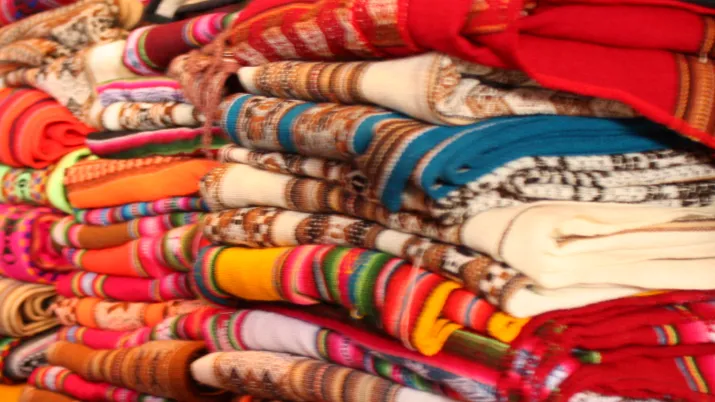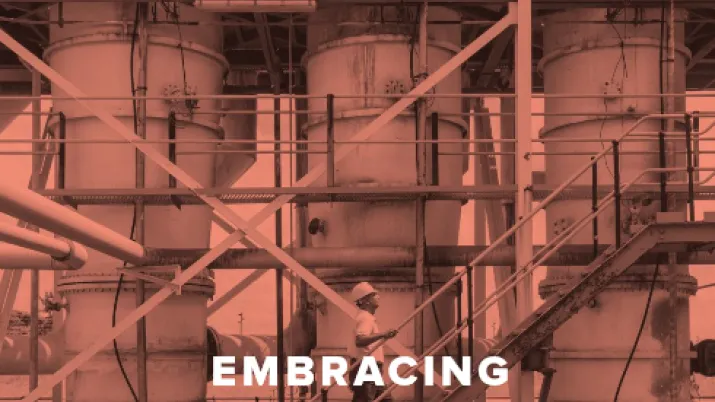All Private Sector & Development magazine articles
Partnerships between civil society and the private sector to protect sensitive regions
The CEPF is a fund specialised in supporting partnerships between environmental protection associations and economic stakeholders. When civil society comprises a wide range of organisations - a divers...
Published on
Recommendations for integrating biodiversity into the wind energy sector in emerging market countries
Renewable energy is essential to achieving sustainable development, and wind energy can provide competitively priced electricity, while helping to reduce climate change impacts. Yet its impacts on bio...
Published on
The Nature Conservancy: using technology to protect tuna stocks
Climate change, pollution, and overfishing are putting enormous pressure on the Pacific. Against this background, the eight island nations that make up the Nauru Agreement (PNA) – which controls 70% o...
Published on
Evolving in order to provide more effective solutions to environmental challenges
Veolia’s historic mission and the development of its businesses have made it a stakeholder who wishes to actively contribute to reducing anthropogenic environmental pollution. Like all industrial busi...
Published on
Protecting biodiversity for The Long Run, a holistic approach?
Faced with the current biodiversity and climate crises, privately protected areas, which play a pivotal role in biodiversity conservation, can improve the resilience of the conservation sector. The pr...
Published on
Diversifying funding for biodiversity conservation
Funding biodiversity conservation is no longer a government-subsidy and grant-giving game only. However, a financing shortfall of USD 598-824 billion per year remains. To fill this void, the private s...
Published on
Nature Positive: turning biodiversity from a risk into an opportunity
Globally, the natural world on which people and economies depend is in crisis. Species are declining, biodiversity loss and novel diseases, such as Covid-19, all pose business risks, but the renewed i...
Published on
Towards eco-systemic concessions: an introduction to the coming age of forests
In the face of wholesale anthropogenic and climate-related threats, the planet’s four billion hectares of forests are now more valuable than ever. As a reaction to this pressure, in the Congo Basin fo...
Published on
Enhancing the export competitiveness of the textile and clothing sector in developing countries
Over the years, assembling clothing has become a commodity. However, mere cut and sew operations are no longer a sustainable offering. To achieve the employment targets envisaged by governments, compa...
Published on
Textile industry: Towards a new economic model to stamp out human rights violations in the workplace
The textile industry employs millions of people in developing countries. Yet its economic model (pressure on costs and lead times, large volumes, frequent renewal of collections, low prices) leads to...
Published on
Dolidol: a showcase for “Made in Morocco”
The CEO of Dolidol tells us about how attached Moroccans are to a traditional product, the Moroccan lounge (comprising L-shaped or U-shaped sprung sofas), and to a local brand, especially in these tim...
Published on
Is industry compatible with climate?
The industrial sector is a major consumer of fossil fuels and the biggest emitter of greenhouse gases (GHG), however there are not as many energy efficiency projects – the key to cutting GHG – as ther...
Published on
Joining in the fight against Covid-19 and diversifying activities: The case of SERMP in Morocco
SERMP is a Moroccan aeronautical subcontracting company. Like the entire sector, it is feeling the economic repercussions of the Covid-19 crisis. To both contribute to the national effort and diversif...
Published on
Geographical indications and quality brands: An effective tool to promote industrial SMEs’ market access
Agri-food production remains at the core of African industry, representing up to 18% and 30% of the industrial revenues in countries like Tunisia and Morocco. Demand for local products has presented o...
Published on
Key questions concerning African industrial development policies
African industrial development is a major challenge for the Continent and it is currently a key focus for governments, financial backers and investors. Although still in the early stages of developmen...
Published on
Private Sector and Development Special Issue: Public Development Banks tackling global challenges
Presentation of the new special issue of Proparco's Private Sector and Development magazine, by Grégory Clemente and Bruno Wenn, respectively CEO of Proparco and President of the EDFI association.
Published on
The role of the manufacturing sector in Asian economic development
When studying industrial development dynamics and their impacts on the economy worldwide, the Asian case is an obvious example. Huge investments in the manufacturing sector have brought about rapid st...
Published on
Supply chain diversification due to Covid-19 to benefit Africa?
With its booming population, Africa may have no choice but to rapidly expand its industrial base. Doing so has been given impetus by European companies’ desire to bring their supply chains closer to p...
Published on
Short-term impacts of the Covid-19 crisis on the African manufacturing sector
Initial reports and data on the impacts of the Covid-19 crisis between March and June 2020 highlight the relative resilience of African countries when compared to other emerging countries such as Braz...
Published on
Embracing the Challenges of Sustainable Industrial Development : Latest issue of Private Sector & Development
The industrial sector is often said to be essential to economic development, but it is also a source of much controversy (environmental impact, labor law compliance, creation of decent jobs, etc.). Th...
Published on




















